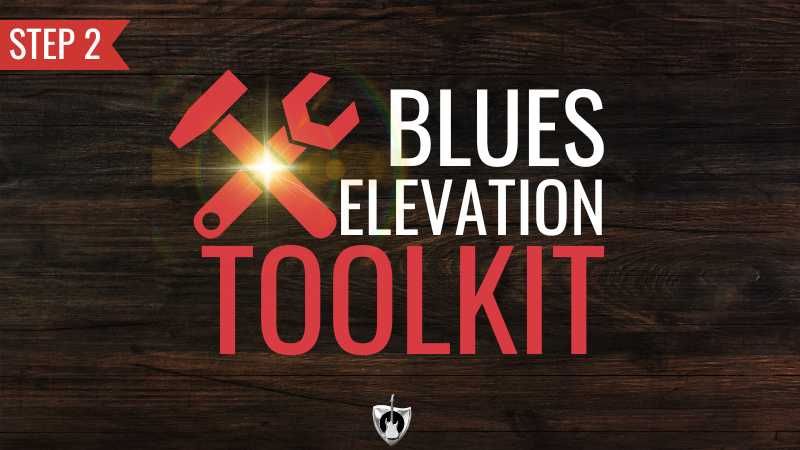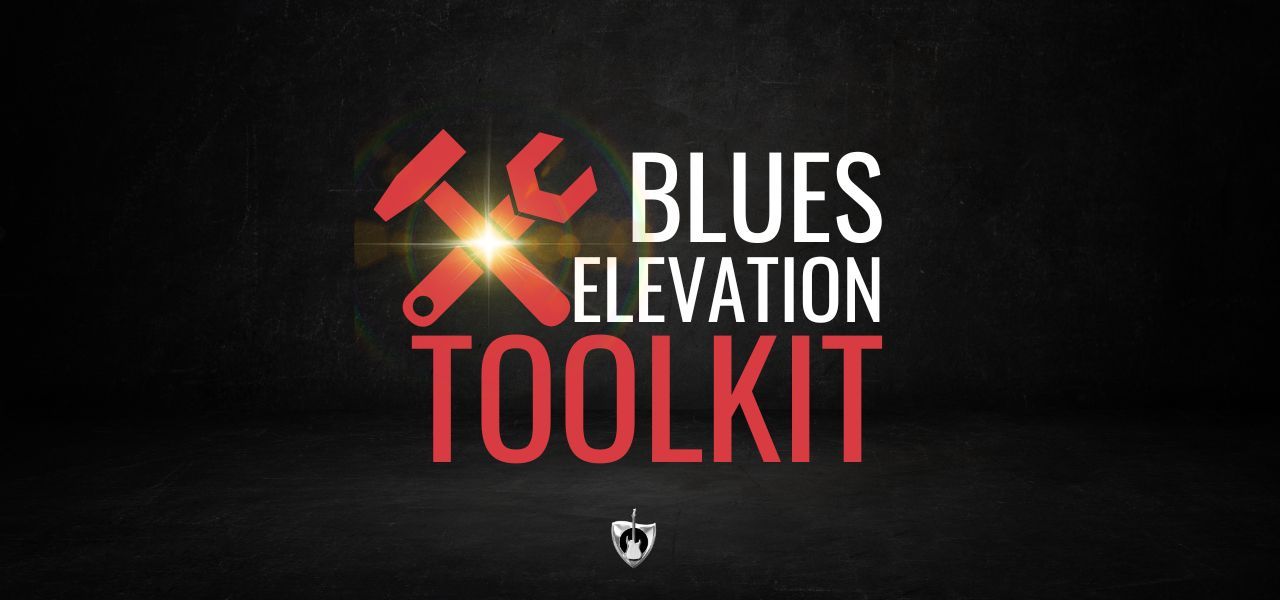The Frustrated Guitarist - 126
Frustration is a big word here. And it is something that I spend a great deal of time thinking about.
Sometimes it's worth spending the time to look up the actual definition of fairly common words to pinpoint the problem and pinpoint the starting point to overcome these problems. We use "frustration" a lot but any help we can get to understand it better may help us break through our problems
Here is the definition of Frustration from Merriam Webster:
A deep chronic sense or state of insecurity and dissatisfaction arising from unresolved problems or unfulfilled needs.
Does this sound like what you signed up for when you decided to devote so much of your life to playing music?
Obviously not, but it is something that we all go through. I'll bet that it's a constant part of most musicians life.
Let's take a look at the three big frustrations that guitarists face and how we can break through them
Frustrations With Tone
The first frustration with tone is not knowing what you want or need. You just know that how you sound isn't the way you want to sound, so where do I start.
This is where YouTube gear reviews can put you in a ditch. All of the new gear with all of the bells and whistles can keep you from understanding the basics of guitar tone. To get the help you need, requires a lot more digging.
You need a starting point
if you just start buying gear that you see reviewed or advertised (which is what most of us do) then you are in for a very long period of frustration. A better place to start is with the classic, basic gear of what ever your desired style of music is.
It wont help you if you love metal and your first real amp is a fender. In that situation, you will spend most of your time trying to put a square peg in a round hole.
The most up to date amp and guitar with a lot of features is not what you need at first. You don't know if the way you play will benefit from those features yet. I have learned over the years that the more features I have, the farther away and the longer it take for me to get what I need.
The better approach is to take the basics of the gear of your style (amp, guitar, pedals, strings, picks. etc. ) work for you. Why is it that so many advanced players use ancient gear that was developed in the 50's... Because it works.
I'm trying to take years off of your gear journey... years. Start with the basics, Tube amp, drive pedal, proven style guitar. If you are going to experiment, experiment with that... a core sound.
Once you have that, you have your foundation, anything else you experiment can be used to accentuate this great tone, instead of covering up problems.
Knowing what you want but you don't know how to get it
Randomly buying guitars and amps to experiment with can be a very long process. It can be decades before you ultimately settle on your sound. How can we speed this up so we can focus on the playing?
Make a habit of asking players that sound the way you would like to their opinions. Then try everything you can and borrow as much gear as you can, first.
If you rush into a purchase before you understand how these things work, you are doing yourself a disservice.
Never being satisfied
If this sounds like you, you are really in it :) You are either returning equipment left and right, or collecting half useful equipment. Financially this can be stressful.
You could be investing in equipment that will most likely not go up in value, or juggling returns and payments. it can be all consuming.
The time that you spend on the great gear experiment doesn't pay off in the long run. It's a hamster wheel.
Change your thinking from being a collector to a player. It doesn't take much to become a player: a guitar, amp, few pedals, tuner.
If they are proven classic gear, you are in business. And the time you have to spend on music, will be just that, spent on music.
Then, when you are comfortable and confident with your tone, you can start a little experimenting.
Frustrated about playing out
Does this sentence sound famliar?
"I could never do that" (or even worse "You could never do that").
I have one response to these sentences:
Yes you can.
There is no one who get's to tell you whether you can play for people or not. There are all kinds of performers, at all levels, that all have something valuable to say.
"At what point can I start?"
Really, who is the judge of that. Who gets to tell musicians that? Do you need a level and need to be certified. I'm glad we don;t. Music would be very boring if we were only allowed to listen to certified players.
So what is it that you need to get started?
A night of songs.. that's it
They can be covers, original song... it doesn't matter. If anyone tries to tell you different, don't listen to them. You could start to get ready to perform today. Will you be great? What is being great really and who get's to judge that.
If you play for 10 people and you will get 10 drastically different opinions of a performance. What will people think? What will people say? Fortunately, it's not about them, It's about you. Of course the ultimate goal is to please an audience, but you will never get there if you let their opinion stop you before you start.
It's taking too long for me to be able to play out
This is a journey, not a race. Playing music is not like other things. There is an element of time that has to be accepted.
Frustrated about musical communication
The last frustration I talk about in today's podcast is:
The fear of being found out
In other words: impostor syndrome.
Have you thought this:
"I'm not really very good and i don't know why these people are playing with me."
A lot of people in this situation fell like they have to act like they can cut it. The truth is that there are no groups where everyone is exactly at the same level... none
Perspective is everything. Your perspective as a newer player is just as valid as an experienced player.
Just be honest.
if the best player in the world only wanted to play with other best players in the world, they would get very lonely. It's ok that you aren't at the same point on the path, It will show anyway. Just be honest.
Ask questions when you don't understand. If you get problems from that, those players aren't worth playing with in the first place.
Negative treatment
Don't stand for it. There are a lot of other players out there. Just leave the situation. Even if it is an underhanded remark that got swept under the rug. There will be more.
The best thing is to call it out. Bring it up.
What have you got to lose. It can just go one of two ways. Either you will gain respect and it will be known that you don't put up with negative behavior, or it will escalate and you will know for certain that you are in the wrong situation for you.
You want to find the situation that is as enjoyable as it can be.
Patience
This is very tough for some people. Music is a test in patience, from all angles. It is very difficult for impatient new players when you are both building a new difficult skill and
dealing with people.
No one has this all figured out. It takes time, work, and an element of trial and error. Extend that patience to others They might just be as frustrated as you. You will know when enough is enough. Don't be quick to judge others, they may be in the same boat as you.
GET FREE WEEKLY GUITAR LESSONS, PODCASTS, AND MOTIVATION DELIVERED TO YOUR INBOX.
Your information is kept safe. It's never shared with third parties.




